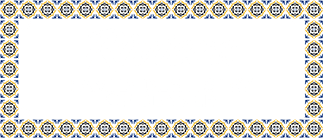
Recovering from dental implant surgery is an important part of achieving a healthy, lasting smile. While implants are one of the most effective ways to replace missing teeth, the healing process requires special care—especially when it comes to what you eat.
Preparing ahead and knowing which foods to avoid can help prevent complications and ensure your implants heal properly.
Why Diet Matters After Dental Implant Surgery
During the first few weeks after surgery, your gums and jawbone are working hard to heal and integrate with the implant post. Eating the wrong foods—especially those that are hard, sticky, or spicy—can cause irritation, disrupt the healing process, or even damage the surgical site. Choosing soft, nutrient-rich foods helps your mouth recover faster and reduces discomfort.
Hard and Crunchy Foods
Avoid anything that requires a lot of chewing or pressure. Hard foods can easily irritate or reopen your surgical site. Steer clear of:
- Chips, pretzels, and popcorn
- Raw fruits and vegetables like carrots or apples
- Hard breads and crusts
- Nuts and seeds
Even small particles from these foods can get trapped around your implant and increase your risk of infection. Opt for soft alternatives such as mashed potatoes, scrambled eggs, and smoothies until your dentist gives you the go-ahead to return to your normal diet.
Sticky and Chewy Foods
Sticky foods can tug on the implant site and interfere with the healing process. They can also be difficult to clean away, creating a breeding ground for bacteria. Avoid:
- Chewing gum and caramel
- Gummy candies
- Dried fruits like raisins or dates
Instead, stick to easy-to-chew options like yogurt, oatmeal, and soft-cooked grains. These will keep you nourished without stressing your mouth.
Hot and Spicy Foods
Immediately after surgery, your gums and surrounding tissue will be sensitive. Hot or spicy foods can cause inflammation and discomfort, slowing your healing progress. For the first week or two, skip:
- Hot soups, sauces, and coffee
- Spicy peppers or salsas
- Acidic foods such as citrus and tomato-based dishes
Let foods cool before eating, and choose mild, soothing meals like lukewarm soups or soft pasta.
Tough Meats and Crunchy Proteins
While protein is essential for healing, certain meats can be too tough to chew safely during the early recovery period. Avoid:
- Steak, jerky, and pork chops
- Fried chicken or crispy fish
Instead, try softer protein sources like scrambled eggs, tofu, ground turkey, or tender baked fish. These provide the nutrients your body needs without causing pain or strain.
Alcohol and Carbonated Beverages
Alcohol can slow down healing and interfere with any prescribed medications, while carbonated drinks may cause irritation and pressure near the surgical site. Avoid both until your dentist confirms that your implant area has sufficiently healed. Choose water or diluted fruit juice instead to stay hydrated and promote recovery.
Taking care with your diet after dental implant surgery will not only make your recovery more comfortable but also help ensure your implants heal properly and last for years to come.
About the Practice
At Riviera Family Dentistry of Denver, patients receive comprehensive dental implant care from consultation to restoration. Dr. Luke Vernon focuses on comfort, precision, and long-term results, providing individualized treatment plans designed to restore your smile’s function and appearance. Whether you need one implant or a full-mouth restoration, our team is committed to helping you heal quickly and smile confidently again.
Call us at (720) 902-8080 or request an appointment online.
